40 start with W start with W
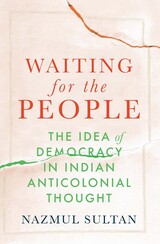
An original reconstruction of how the debates over peoplehood defined Indian anticolonial thought, and a bold new framework for theorizing the global career of democracy.
Indians, their former British rulers asserted, were unfit to rule themselves. Behind this assertion lay a foundational claim about the absence of peoplehood in India. The purported “backwardness” of Indians as a people led to a democratic legitimation of empire, justifying self-government at home and imperial rule in the colonies.
In response, Indian anticolonial thinkers launched a searching critique of the modern ideal of peoplehood. Waiting for the People is the first account of Indian answers to the question of peoplehood in political theory. From Surendranath Banerjea and Radhakamal Mukerjee to Mohandas Gandhi and Jawaharlal Nehru, Indian political thinkers passionately explored the fraught theoretical space between sovereignty and government. In different ways, Indian anticolonial thinkers worked to address the developmental assumptions built into the modern problem of peoplehood, scrutinizing contemporary European definitions of “the people” and the assumption that a unified peoplehood was a prerequisite for self-government. Nazmul Sultan demonstrates how the anticolonial reckoning with the ideal of popular sovereignty fostered novel insights into the globalization of democracy and ultimately drove India’s twentieth-century political transformation.
Waiting for the People excavates, at once, the alternative forms and trajectories proposed for India’s path to popular sovereignty and the intellectual choices that laid the foundation for postcolonial democracy. In so doing, it uncovers largely unheralded Indian contributions to democratic theory at large. India’s effort to reconfigure the relationship between popular sovereignty and self-government proves a key event in the global history of political thought, one from which a great deal remains to be learned.

Soldier, hero, and politician, the Duke of Wellington is one of the best-known figures of nineteenth-century England. From his victory at Waterloo over Napoleon in 1815, he rose to become prime minister of his country. But Peter Sinnema finds equal fascination in Victorian England’s response to the duke’s death.
The Wake of Wellington considers Wellington’s spectacular funeral pageant in the fall of 1852—an unprecedented event that attracted one and a half million spectators to London—as a threshold event against which the life of the soldier-hero and High Tory statesman could be re-viewed and represented.
Canvassing a profuse and dramatically proliferating Wellingtoniana, Sinnema examines the various assumptions behind, and implications of, the Times’s celebrated claim that the Irish-born Wellington “was the very type and model of an Englishman.” The dead duke, as Sinnema demonstrates, was repeatedly caught up in interpretive practices that stressed the quasi-symbolic relations between hero and nation.
The Wake of Wellington provides a unique view of how in death Wellington and his career were promoted as the consummation of a national destiny intimately bound up with Englishness itself, and with what it meant to be English at midcentury.
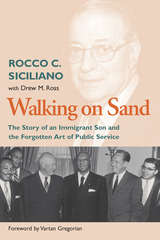
Rocco C. Siciliano broke new ground as the first Italian-American to serve in the White House as an assistant to the president, Dwight D. Eisenhower. At 31, "Ike’s Youngest" attained a prominence not suggested in his humble beginnings in Salt Lake City, Utah. But his upbringing in the Mormon-dominated community, where he balanced the heritage of his striving immigrant parents with his own aspirations for success, prepared him for a wide variety of service. This service includes leading a special weapons platoon in the 10th Mountain Division in World War II, bringing Martin Luther King Jr. to meet with President Eisenhower, and becoming a recognized business leader in California.
Siciliano used his expertise in labor, personnel management, and business to contribute substantively to the J. Paul Getty Center, the Los Angeles Philharmonic Association, the Committee for Economic Development, and the "Volcker" Commission on Public Service, among others.
The variety of Siciliano’s experiences reinvigorates our understanding of the forgotten art of public service. Walking on Sand emphasizes the role that public service can play for corporations, communities, states, and the nation. This story is a gift from the Greatest Generation to the many people who serve America today and will serve her tomorrow.
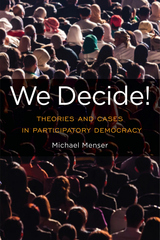
Participatory democracy calls for the creation and proliferation of practices and institutions that enable individuals and groups to better determine the conditions in which they act and relate to others. Michael Menser’s timely book We Decide! is arguably the most comprehensive treatment of participatory democracy. He explains the three waves of participatory democracy theory to show that this movement is attentive to the mechanics of contemporary political practices. Menser also outlines “maximal democracy,” his own view of participatory democracy that expands people’s abilities to shape their own lives, reduce inequality, and promote solidarity.
We Decide! draws on liberal, feminist, anarchist, and environmental justice philosophies as well as in-depth case studies of Spanish factory workers, Japanese housewives, and Brazilian socialists to show that participatory democracy actually works. Menser concludes his study by presenting a reconstructed version of the state that is shaped not by corporations but by inclusive communities driven by municipal workers, elected officials, and ordinary citizens working together. In this era of Bernie Sanders and Donald Trump, the participatory democracy proposed in We Decide! is more significant than ever.
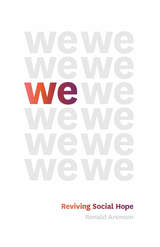
Beneath today’s crisis Aronson examines our heartbreaking story: a century of catastrophic violence and the bewildering ambiguity of progress—all of which have contributed to the evaporation of social hope. As he shows, we are now in a time when hope is increasingly privatized, when—despite all the ways we are connected to each other—we are desperately alone, struggling to weather the maelstrom around us, demoralized by the cynicism that permeates our culture and politics, and burdened with finding personal solutions to social problems.
Yet, Aronson argues, even at a time when false hopes are rife, social hope still persists. Carefully exploring what we mean when we say we “hope” and teasing hope apart from its dangerously misconstrued sibling, “progress,” he locates seeds of real change. He argues that always underlying our experience—even if we completely ignore it—is the fact of our social belonging, and that this can be reactivated into a powerful collective force, an active we. He looks to various political movements, from the massive collective force of environmentalists to the movements around Sanders and Jeremy Corbyn, as powerful examples of socially energized, politically determined, and actionably engaged forms of hope. Even in this age of Donald Trump, the result is an illuminating and inspiring call that anyone can clearly hear: we can still create a better future for everyone, but only if we resist false hopes and act together.
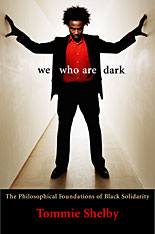
African American history resounds with calls for black unity. From abolitionist times through the Black Power movement, it was widely seen as a means of securing a full share of America's promised freedom and equality. Yet today, many believe that black solidarity is unnecessary, irrational, rooted in the illusion of "racial" difference, at odds with the goal of integration, and incompatible with liberal ideals and American democracy. A response to such critics, We Who Are Dark provides the first extended philosophical defense of black political solidarity.
Tommie Shelby argues that we can reject a biological idea of race and agree with many criticisms of identity politics yet still view black political solidarity as a needed emancipatory tool. In developing his defense of black solidarity, he draws on the history of black political thought, focusing on the canonical figures of Martin R. Delany and W. E. B. Du Bois, and he urges us to rethink many traditional conceptions of what black unity should entail. In this way, he contributes significantly to the larger effort to re-envision black politics and to modernize the objectives and strategies of black freedom struggles for the post-civil rights era. His book articulates a new African American political philosophy--one that rests firmly on anti-essentialist foundations and, at the same time, urges a commitment to defeating racism, to eliminating racial inequality, and to improving the opportunities of those racialized as "black."
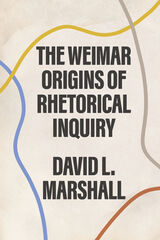
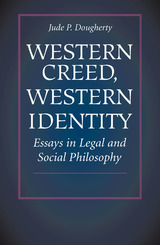

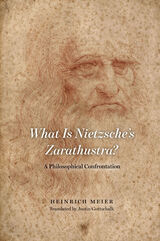
Heinrich Meier attempts to penetrate the core of the drama, following as a guiding thread the question of whether Zarathustra is a philosopher or a prophet, or, if he is meant to be both, whether Zarathustra is able to unite philosopher and prophet in himself. Via a close reading that uncovers the book’s hidden structure, Meier develops a highly stimulating and original interpretation of this much discussed but still ill-understood masterwork of German poetic prose. In the process, he carefully overturns long-established canons in the academic discourse of Nietzsche-interpretation. The result is a fresh and surprising grasp of Nietzsche’s well-known teachings of the overman, the will to power, and the eternal return.
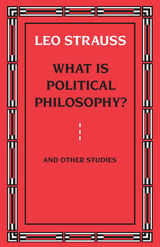
What Is Political Philosophy?—a collection of ten essays and lectures and sixteen book reviews written between 1943 and 1957—contains some of Leo Strauss's most famous writings and some of his most explicit statements of the themes that made him famous. The title essay records Strauss's sole extended articulation of the meaning of political philosophy itself. Other essays discuss the relation of political philosophy to history, give an account of the political philosophy of the non-Christian Middle Ages and of classic European modernity, and present his theory of esoteric writing.

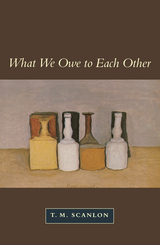
“This magnificent book…opens up a novel, arresting position on matters that have been debated for thousands of years.” —Times Literary Supplement
How do we judge whether an action is morally right or wrong? If an action is wrong, what reason does that give us not to do it? Why should we give such reasons priority over our other concerns and values? In this book, T. M. Scanlon offers new answers to these questions, as they apply to the central part of morality that concerns what we owe to each other. According to his contractualist view, thinking about right and wrong is thinking about what we do in terms that could be justified to others and that they could not reasonably reject. He shows how the special authority of conclusions about right and wrong arises from the value of being related to others in this way, and he shows how familiar moral ideas such as fairness and responsibility can be understood through their role in this process of mutual justification and criticism.
Scanlon bases his contractualism on a broader account of reasons, value, and individual well-being that challenges standard views about these crucial notions. He argues that desires do not provide us with reasons, that states of affairs are not the primary bearers of value, and that well-being is not as important for rational decision-making as it is commonly held to be. Scanlon is a pluralist about both moral and non-moral values. He argues that, taking this plurality of values into account, contractualism allows for most of the variability in moral requirements that relativists have claimed, while still accounting for the full force of our judgments of right and wrong.
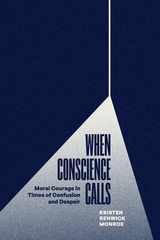
What is moral courage? Why is it important and what drives it? An argument for why we should care about moral courage and how it shapes the world around us.
War, totalitarianism, pandemics, and political repression are among the many challenges and crises that force us to consider what humane people can do when the world falls apart. When tolerance disappears, truth becomes rare, and civilized discourse is a distant ideal, why do certain individuals find the courage to speak out when most do not?
When Conscience Calls offers powerful portraits of ordinary people performing extraordinary acts—be it confronting presidents and racist mobs or simply caring for and protecting the vulnerable. Uniting these portraits is the idea that moral courage stems not from choice but from one’s identity. Ultimately, Kristen Renwick Monroe argues bravery derives from who we are, our core values, and our capacity to believe we must change the world. When Conscience Calls is a rich examination of why some citizens embrace anger, bitterness, and fearmongering while others seek common ground, fight against dogma, and stand up to hate.
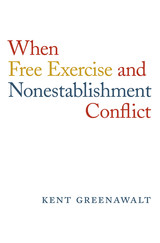
The First Amendment to the United States Constitution begins: “Congress shall make no law respecting an establishment of religion or prohibiting the free exercise thereof.” Taken as a whole, this statement has the aim of separating church and state, but tensions can emerge between its two elements—the so-called Nonestablishment Clause and the Free Exercise Clause—and the values that lie beneath them.
If the government controls (or is controlled by) a single church and suppresses other religions, the dominant church’s “establishment” interferes with free exercise. In this respect, the First Amendment’s clauses coalesce to protect freedom of religion. But Kent Greenawalt sets out a variety of situations in which the clauses seem to point in opposite directions. Are ceremonial prayers in government offices a matter of free exercise or a form of establishment? Should the state provide assistance to religious private schools? Should parole boards take prisoners’ religious convictions into account? Should officials act on public reason alone, leaving religious beliefs out of political decisions? In circumstances like these, what counts as appropriate treatment of religion, and what is misguided?
When Free Exercise and Nonestablishment Conflict offers an accessible but sophisticated exploration of these conflicts. It explains how disputes have been adjudicated to date and suggests how they might be better resolved in the future. Not only does Greenawalt consider what courts should decide but also how officials and citizens should take the First Amendment’s conflicting values into account.
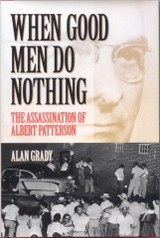
A provocative telling of "The Phenix City Story."
On June 18, 1954, former state senator Albert Patterson, the Democratic Party's nominee for state attorney general, was shot to death as he left his law office in Phenix City, Alabama, infamous for its prostitution, gambling, bootlegging, and political corruption. Patterson had made cleanup of Phenix City his primary campaign promise. With millions of dollars in illegal income and hundreds of political and professional careers at stake, the question surrounding Patterson's murder was not why the trigger was pulled, but who pulled it.
When Good Men Do Nothing is the definitive study of the Albert Patterson murder case. Alan Grady has mined the state's original murder case files; the papers of John Patterson, Albert's son; records from the Office of Alabama Attorney General (who directed the murder investigation); the case files of the Alabama Department of Toxicology and Criminal Investigation; National Guard reports; and more than 30 interviews with eyewitnesses and interested parties.
Grady takes a complex story of multiple dimensions—a large cast of judicial, criminal, and political players; a web of alliances and allegiances; and a knotted sequence of investigative revelations and dead ends—and transforms it into a readable, incisive analysis of the powers and loyalties that governed, and corrupted to the core, the body politic of the state. Readers will be enthralled and educated by this authoritative account of the most compelling crime drama in Alabama during the 20th century.
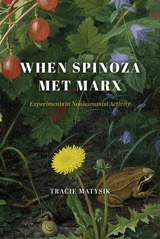
Karl Marx was a fiery revolutionary theorist who heralded the imminent demise of capitalism, while Spinoza was a contemplative philosopher who preached rational understanding and voiced skepticism about open rebellion. Spinoza criticized all teleological ideas as anthropomorphic fantasies, while Marxism came to be associated expressly with teleological historical development. Why, then, were socialists of the German nineteenth century consistently drawn to Spinoza as their philosophical guide? Tracie Matysik shows how the metaphorical meeting of Spinoza and Marx arose out of an intellectual conundrum around the meaning of activity. How is it, exactly, that humans can be fully determined creatures but also able to change their world? To address this paradox, many revolutionary theorists came to think of activity in the sense of Spinoza—as relating. Matysik follows these Spinozist-socialist intellectual experiments as they unfolded across the nineteenth century, drawing lessons from them that will be meaningful for the contemporary world.
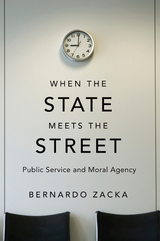
When the State Meets the Street probes the complex moral lives of street-level bureaucrats: the frontline social and welfare workers, police officers, and educators who represent government’s human face to ordinary citizens. Too often dismissed as soulless operators, these workers wield a significant margin of discretion and make decisions that profoundly affect people’s lives. Combining insights from political theory with his own ethnographic fieldwork as a receptionist in an urban antipoverty agency, Bernardo Zacka shows us firsthand the predicament in which these public servants are entangled.
Public policy consists of rules and regulations, but its implementation depends on how street-level bureaucrats interpret them and exercise discretionary judgment. These workers are expected to act as sensible moral agents in a working environment that is notoriously challenging and that conspires against them. Confronted by the pressures of everyday work, they often and unknowingly settle for one of several reductive conceptions of their responsibilities, each by itself pathological in the face of a complex, messy reality. Zacka examines the factors that contribute to this erosion of moral sensibility and what it takes to remain a balanced moral agent in such difficult conditions.
Zacka’s revisionary portrait reveals bureaucratic life as more fluid and ethically fraught than most citizens realize. It invites us to approach the political theory of the democratic state from the bottom-up, thinking not just about what policies the state should adopt but also about how it ought to interact with citizens when implementing these policies.
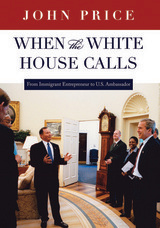
When the White House Calls tells the life story of John Price, one of Utah’s most prominent citizens, beginning with his birth in Germany through his years as a successful builder and real estate developer—with business interests in broadcasting, manufacturing, distribution, and banking—to his life as a diplomat. Born in Berlin on August 18, 1933, Hans Joachim Praiss was five years old when he and his family fled Nazi Germany in April 1939. The family found temporary refuge in Panama, finally arriving at Ellis Island in September 1940 and settling in New York City. Following the advice of a professor at CCNY, Price traveled west to fulfill a geology fieldwork course requirement, but upon seeing the snow-capped mountains surrounding Salt Lake City, knew he would stay. He earned his Bachelor of Science in Geological Engineering from the University of Utah in 1956. He practiced in that field before tiring of the often rigorous travel requirements and the desolate nature of the work. He soon turned to new opportunities.
Years later, after operating successful business enterprises throughout the Intermountain region and nationally, and serving on numerous local, state, and national boards, Price had become the consummate entrepreneur, businessman, and community leader. He was ready to serve his country when the White House called. In February 2002 he was sworn in as U.S. Ambassador to the Republic of Mauritius, the Republic of Seychelles, and the Union of the Comoros, three Indian Ocean island nations off the east coast of Africa, where he served until 2005.
In this telling autobiography, John Price focuses on his years as an ambassador and includes his thoughts on the future of sub-Saharan Africa. The account of his service as a diplomat offers readers a view of the daily life of an ambassador—the protocol for official meetings with heads of state, the routine of the office, the process of handling official communications, and the intricacies of diplomacy. More than that, in a world concerned with the global war on terror, he reflects on the three island nations where he served and on the region’s increasing strategic importance to the national security of the United States.
In the years since the 2001 attacks on the World Trade Center and the Pentagon, the al-Qaeda movement has grown and its members have dispersed throughout the world, including the region known as the Horn of Africa and East Africa. Price calls attention to the vulnerability of sub-Saharan Africa as a haven for terrorists, and the critical need for our engagement of this desperate continent with economic development, health care, and education to counter this threat. His concern for this region of Africa is carefully articulated in the text, as well as in interviews (included as appendixes) with notable country leaders. When the White House Calls is a compelling story of the American Dream realized, and the importance of service to country. This is a book that will both educate and inspire young people, their mentors, and others, as they work to make a difference in the world.
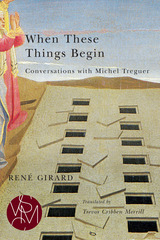

Derby’s account of the awakening of her post-college experience living abroad and stories of her global travels infuse this memoir with an international perspective and entertaining vignettes. Ultimately, Derby shares her personal understanding of the transformative power of living among different cultures.
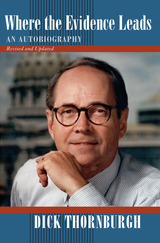
Set in any era, Dick Thornburgh’s brilliant career would merit study and retelling. He was the first Republican elected to two successive terms as governor of Pennsylvania. He served in the Department of Justice under five presidents, including three years as attorney general for Presidents Reagan and Bush. As undersecretary-
general of the United Nations, he was the highest-ranking American in the organization and a strong voice for reform.
Nationally, Thornburgh is best remembered for his three years as attorney general, when he managed some of the most vexing legal matters of the modern age: the Savings and Loan and BCCI scandals; controversy over the “Iraqgate” and INSLAW investigations and the Wichita abortion clinic protests; and prosecutions of Michael Milken, Manuel Noriega, and Marion Barry, as well as those involved in the Pan Am Flight 103 bombing, the Exxon Valdez oil spill, and the Rodney King beating.
As governor of Pennsylvania, he faced the nation’s worst nuclear accident, weeks after his inauguration in 1979. Thornburgh's cool-headed response to the Three Mile Island disaster is often studied as a textbook example of emergency management. His historic 1992 battle against Harris Wofford for the late John Heinz III’s Senate seat is one of several political campaigns, vividly recalled, that reveal the inner workings of the commonwealth’s political machinery.
Thornburgh reveals painful details of his personal life, including the automobile accident that claimed the life of his first wife and permanently disabled his infant son. He presents a frank analysis of the challenges of raising a family as a public figure, and tells the moving story of his personal and political crusade that culminated in the Americans with Disabilities Act of 1990.
This revised and updated edition includes a new chapter devoted to the highlights of Thornburgh’s continuing career. He offers fascinating insights into his experiences as Bankruptcy Court Examiner for the WorldCom proceedings, leading the investigation into the CBS News report on President George W. Bush’s military service record, representing Allegheny County coroner Cyril Wecht in a trial over alleged misuse of public office, and as part of the K&L Gates team consulted by Chiquita Brands during a federal investigation over payments made to Colombian guerillas and paramilitaries to protect banana growers.
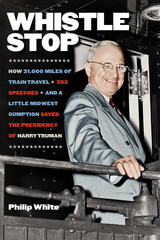
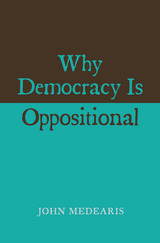
Is infrequent voting the most we can expect from a free citizenry? Would democracy be more robust if our political discourse were more deliberative? John Medearis’s trenchant and trend-bucking work of political philosophy argues that democracies face significant challenges that go beyond civic lethargy and unreasonable debate. Democracy is inherently a fragile state of affairs, he reminds us. Revisiting fundamental questions about the system in theory and practice, Why Democracy Is Oppositional helps us see why preserving democracy has always been—and will always be—a struggle.
As citizens of democracies seek political control over their destinies, they confront forces that threaten to dominate their lives. These forces may take the form of runaway financial markets, powerful special interests, expanding militaries, or dysfunctional legislatures. But citizens of democracies help create the very institutions that overwhelm them. Hostile threats do not generally come from the outside but are the product of citizens’ own collective activities. Medearis contends that democratic action perpetually arises to reclaim egalitarian control over social forces and institutions that have become alienated from large numbers of citizens. Democracy is therefore necessarily oppositional. Concerted, contentious political activities of all kinds are fundamental to it, while consensus and easy compromise are rarities.
Recovering insights from political theorists such as Karl Marx and John Dewey, Why Democracy Is Oppositional addresses contemporary issues ranging from the global financial crisis and economic inequality to drone warfare and mass incarceration.
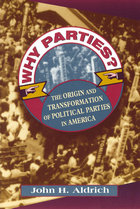
Surveying three critical episodes in the development of American political parties—from their formation in the 1790s to the Civil War—Aldrich shows how parties serve to combat three fundamental problems of democracy: how to regulate the number of people seeking public office; how to mobilize voters; and how to achieve and maintain the majorities needed to accomplish goals once in office. Overcoming these obstacles, argues Aldrich, is possible only with political parties.
Aldrich brings this innovative account up to date by looking at the profound changes in the character of political parties since World War II. In the 1960s, he shows, parties started to become candidate-centered organizations that are servants to their office seekers and officeholders. Aldrich argues that this development has revitalized parties, making them stronger, and more vital, with well-defined cleavages and highly effective governing ability.

Why do civilians suffer most during times of violent conflict? Why are civilian fatalities as much as eight times higher, calculated globally for current conflicts, than military fatalities? In Why They Die, Daniel Rothbart and Karina V. Korostelina address these questions through a systematic study of civilian devastation in violent conflicts. Pushing aside the simplistic definition of war as a guns-and-blood battle between two militant groups, the authors investigate the identity politics underlying conflicts of many types. During a conflict, all those on the opposite side are perceived as the enemy, with little distinction between soldiers and civilians. As a result, random atrocities and systematic violence against civilian populations become acceptable.
Rothbart and Korostelina devote the first half of the book to case studies: deportation of the Crimean Tatars from the Ukraine, genocide in Rwanda, the Lebanon War, and the war in Iraq. With the second half, they present new methodological tools for understanding different types of violent conflict and discuss the implications of these tools for conflict resolution.
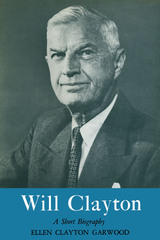
Will Clayton left his mark on world commerce through the development of Anderson, Clayton & Co., the world's largest cotton marketing firm; he made an equally important impress on international economics and politics through special and vital service in the State Department during three crucial years of world history.
The politico-economic philosophy that Will Clayton developed as cotton merchant to the world provided the basis for his distinguished service as Assistant Secretary of State and as Undersecretary of State for Economic Affairs and influenced the course of international events far more than is generally realized.
"When the full story of the genesis of the Marshall Plan is told, it will become evident that the inspiration was Will Clayton's; which means he will have a firm niche in history, for this, if for nothing else," wrote John Dalgleish in Everybody's Weekly (London) in 1947. Dalgleish's opinion is supported by documentary evidence and the statements of others whose views are given in this short biography.
The principal events in Will Clayton's background that shaped his character and developed his personal philosophy are here portrayed by one who had a unique opportunity to view her subject at close range during the main periods of his careers in government and business. In this brief biography, his eldest daughter, Ellen Clayton Garwood, intimately but objectively traces the evolution of Clayton's realistic internationalism. The effectiveness of his governmental service in a fast-shrinking world had its roots in his early struggles in international cotton marketing. His marked ability to gain the support of Congress for government proposals—extension of the Reciprocal Trade Agreements Act, the British Loan, the Marshall Plan—is foreshadowed in his triumphant defense of his own business before a Senate investigating committee in the early twentieth century, and by his championship of Southern delivery on futures contracts on the New York Cotton Exchange.
But the story is not all one of success. Will Clayton wanted more than anything to see his country assume membership in an International Trade Organization, for the charter of which he had worked so hard. His disappointment here—partially offset by the success of the General Agreement on Tariffs and Trade—finds counterpart throughout these pages in the obstacles he had to overcome in his development as a human being.
And human being he emerges—son, husband, and father; businessman and statesman—whose measure, with its shadow and its highlights, should serve as strong encouragement for those who would serve their country and their world with equally intelligent devotion.
This book, therefore, brings a note of definite optimism. Will Clayton started out as a poor boy among the bewildered people of the reconstructed South. He emerged a statesman who drew out of still worse confusion in the world a program of hopeful and uplifting clarity. His own words, in a cable from Geneva, August 15, 1947, describe the challenge he met—a challenge that recurs in different form today: "A great opportunity to help Europe lift herself permanently out of a morass of bilateralism and restrictionism has floated in to us on a floodtide of destruction. If we fail to seize this opportunity now it will probably never return except possibly after a third World War."
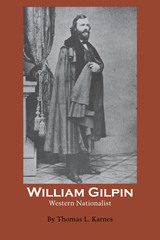
William Gilpin (1815–1894) has been called “America’s first geopolitician.” Regarded today as both scientist and quack, Gilpin was in his own time a recognized authority whose maps were accepted by Congress as the most accurate available, and his description of trails and land in the West were read by pioneer and scientist alike as inspiration and guide.
His writings first introduced to the American public the treasures of the Great Plains (to Gilpin probably belongs the credit for introducing this well-known term) and the mountain plateaus of the Rockies. He advertised the future of the lush valleys of Oregon and the mineral riches that, he was sure, the American West contained.
Gilpin was a cultured, educated man; his studies and his hours of lonely observation on many trips across the American prairies had resulted in the theory—in part true, in part fallacious—about the importance of the Mississippi Valley to world trade and world peace. To his contemporaries and a few later historians he was “a man of rare genius and advanced thought, a prophet and pioneer of civilization,” “one of the wonderful and gifted men of the age, and to him are the citizens of the Republic, in general, and the West, in particular, immeasurably indebted.”
In this biography Thomas L. Karnes traces the life of William Gilpin from the quiet comfort of his wealthy Quaker boyhood home through an exciting and turbulent career as Indian fighter, pioneer, newspaper editor, explorer, land promoter, and first governor of Colorado Territory. But throughout his varied career there was one task to which Gilpin was always devoted: he was a publicizer of the West, first in letters to family and friends; then in newspaper articles, books, and speeches; and finally in reports that became part of the Congressional Record and that influenced the actions of Presidents.
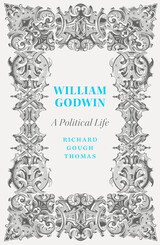
William Godwin was the first major anarchist thinker in the Anglophone world, and his thought rocked the establishment at the beginning of the nineteenth century. Famously married to Mary Wollstonecraft, father to Mary Shelley, and inspiration to Lord Byron, he lived a life and created a body of work that lie at the heart of British radicalism and romanticism.
In this biography, Richard Gough Thomas reads Godwin afresh, drawing on newly discovered letters and journals. He situates Godwin’s early life in the counterculture of eighteenth-century religious dissent, before moving on to exploring the ideas of the French Revolution. As Godwin's groundbreaking works propelled him from Whig party hack to celebrity philosopher, his love affair with Mary Wollstonecraft saw him ostracized in both liberal and conservative circles.
Godwin's anarchism always remained at the center of his work, Thomas shows, inspiring libertarians, both left- and right-wing. This biography places Godwin alongside the other members of his famous family as a major political, ethical, and educational writer and shows why a reappraisal of his ideas is pertinent today.
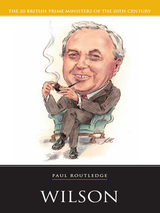
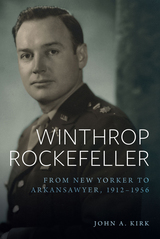
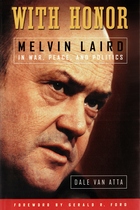
The first book ever to focus on Laird’s legacy, this authorized biography reveals his central and often unrecognized role in managing the crisis of national identity sparked by the Vietnam War—and the challenges, ethical and political, that confronted him along the way. Drawing on exclusive interviews with Laird, Henry Kissinger, Gerald Ford, and numerous others, author Dale Van Atta offers a sympathetic portrait of a man striving for open government in an atmosphere fraught with secrecy. Van Atta illuminates the inner workings of high politics: Laird’s behind-the-scenes sparring with Kissinger over policy, his decisions to ignore Nixon’s wilder directives, his formative impact on arms control and health care, his key role in the selection of Ford for vice president, his frustration with the country’s abandonment of Vietnamization, and, in later years, his unheeded warning to Donald Rumsfeld that “it’s a helluva lot easier to get into a war than to get out of one.”

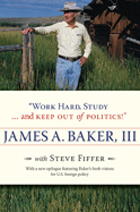
Beginning in 1975 with the Ford administration, in a job procured for him by friend and tennis partner George H. W. Bush, Baker was in the thick of American politics. He recounts the inside story of Ford’s rejection of Reagan as a running mate in 1976 with the same insight he has into Reagan’s rejection of Ford four years later. When the White House was plunged into turmoil after the Reagan assassination attempt, he was there, and his stories take readers deeper into those chaotic days. Baker was on hand for the George H. W. Bush campaign’s battle over running mate Dan Quayle and, more recently, he was again on the front row as George W. Bush fought it out in Florida. Spellbinding and frank, his stories are the ones between the lines of our history books.
In this new edition, Baker also responds for the first time in print to the George W. Bush administration’s reaction to the Iraq Study Group Report, written with his input. Baker is very qualified to comment on the political operation of the current administration, and his new writing for this paperback brings the full weight of his experience to bear.
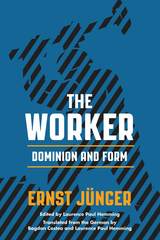
Martin Heidegger considered Jünger “the only genuine follower of Nietzsche,” singularly providing “an interpretation which took shape in the domain of that metaphysics which already determines our epoch, even against our knowledge; this metaphysics is Nietzsche's doctrine of the ‘will to power.’” In The Worker, Jünger examines some of the defining questions of that epoch: the nature of individuality, society, and the state; morality, justice, and law; and the relationships between freedom and power and between technology and nature.
This work, appearing in its entirety in English translation for the first time, is an important contribution to debates on work, technology, and politics by one of the most controversial German intellectuals of the twentieth century. Not merely of historical interest, The Worker carries a vital message for contemporary debates about world economy, political stability, and equality in our own age, one marked by unsettling parallels to the 1930s.
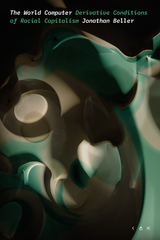
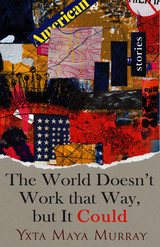
The Millions' Most Anticipated: The Great Second-Half of 2020 Book Preview
The gripping, thought-provoking stories in Yxta Maya Murray’s latest collection find their inspiration in the headlines. Here, ordinary people negotiate tentative paths through wildfire, mass shootings, bureaucratic incompetence, and heedless government policies with vicious impacts on the innocent and helpless. A nurse volunteers to serve in catastrophe-stricken Puerto Rico after Hurricane Maria and discovers that her skill and compassion are useless in the face of stubborn governmental inertia. An Environmental Protection Agency employee, whose agricultural-worker parents died after long exposure to a deadly pesticide, finds herself forced to find justifications for reversing regulations that had earlier banned the chemical. A Department of Education employee in a dystopic future America visits a highly praised charter school and discovers the horrific consequences of academic failure. A transgender trainer of beauty pageant contestants takes on a beautiful Latina for the Miss USA pageant and brings her to perfection and the brink of victory, only to discover that she has a fatal secret.
The characters in these stories grapple with the consequences of frightening attitudes and policies pervasive in the United States today. The stories explore not only our distressing human capacity for moral numbness in the face of evil, but also reveal our surprising stores of compassion and forgiveness. These brilliantly conceived and beautifully written stories are troubling yet irresistible mirrors of our time.
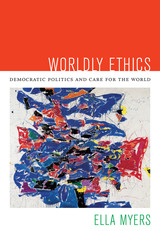

Few people today remember John Swainson. As a teenage soldier he lost both legs in a WWII landmine explosion. Back in the United States, following a meteoric political rise in the Michigan State Senate, Swainson was elected as Michigan's youngest governor since Stevens T. Mason.
In 1970 Swainson was elected to the Michigan Supreme Court, becoming one of the few public officials to have served in the legislative, executive, and judicial branches of state government. Then, in 1957, he was indicted on federal charges of bribery and perjury, and convicted of lying to a federal grand jury. Forced to leave the state Supreme Court and disbarred from practicing law, he became a pariah, sinking into depression and alcoholism. He virtually disappeared from public view.
Lawrence M. Glazer re-examines the FBI's investigation of Swainson and delves into his 1975 trial in detail. He reveals new information from eye-witnesses who never testified and, in a poignant coda, relates the little-known story of Swainson's rehabilitation and return to public life as a historian.
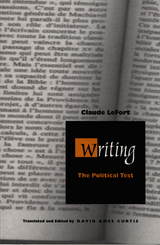
In Writing: The Political Test, France’s leading political philosopher, Claude Lefort, illuminates the process by which writers negotiate difficult path to free themselves from the ideological and contextual traps that would doom their attempts to articulate a new vision. Lefort examines writers whose works provide special insights into this problem of risk, both literary artists and political philosophers. Among them are Salman Rushdie, Sade, Tocqueville,m Machiavelli, Leo Strauss, Orwell, Kant, Robespierre, Guizot, and Pierre Clastres. In Tocqueville, for example, Lefort finds that the author’s improvisatory and open-ended expression represents the character of the democratic experience. Orwell’s work on totalitarianism shows up the totalitarian subject’s complicity in this political regime. And Rushdie is remarkable for his solid attack on relativism. With the character and fate of the political forms of modernity, democracy, and totalitarianism a central theme, Lefort concludes with some reflections on the collapse of the Soviet Union.
This intriguing and accessible exploration of literature’s political aspects and political philosophy’s literary ones will be welcomed by those who have been stymied by current efforts to bridge these two fields. Taken together, the essays in this volume also stand as an intellectual autobiography of Lefort, making it an excellent introduction to his work for less experience students of political theory or philosophy.
READERS
Browse our collection.
PUBLISHERS
See BiblioVault's publisher services.
STUDENT SERVICES
Files for college accessibility offices.
UChicago Accessibility Resources
home | accessibility | search | about | contact us
BiblioVault ® 2001 - 2024
The University of Chicago Press









